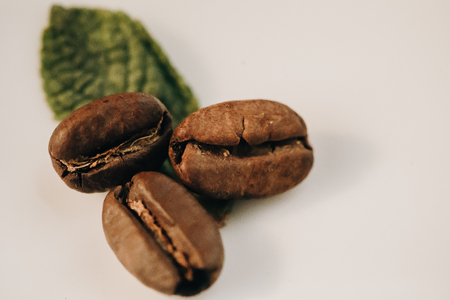Introduction to Single-Origin Coffee in the UK
In recent years, the British coffee scene has undergone a remarkable transformation, with single-origin coffees taking centre stage in cafés and roasteries across the country. Traditionally known for its affinity with tea, the UK has developed a thriving specialty coffee culture that now celebrates both quality and provenance. As discerning consumers seek out distinctive flavours and unique stories behind each cup, the demand for traceability in coffee sourcing has grown rapidly. British coffee enthusiasts are no longer satisfied with generic blends; instead, they are eager to learn about the origins of their beans, the farmers who cultivate them, and the methods employed throughout the supply chain. This shift reflects a broader movement towards transparency and sustainability within the industry, driven by an appreciation for craftsmanship and ethical responsibility. For UK roasters, sourcing single-origin coffees is not only about flavour complexity but also about fostering meaningful connections from farm to cup—a journey that resonates deeply with the values of today’s British coffee drinker.
2. The Art of Sourcing: Building Relationships with Coffee Producers
For British roasters, sourcing single-origin coffees is a meticulous craft that goes far beyond selecting beans from a catalogue. It’s a process rooted in relationship-building, transparency, and a commitment to ethical trade. British coffee culture places significant emphasis on provenance and traceability, driving roasters to forge direct links with producers at origin. This not only ensures access to exceptional quality but also supports sustainable livelihoods for farming communities worldwide.
Direct Trade Partnerships
Unlike traditional commodity-based models, many UK roasters actively pursue direct trade arrangements. By bypassing intermediaries, they foster open communication and mutual respect with farmers. This hands-on approach allows for collaborative experimentation with processing methods and varietals, ultimately yielding unique flavour profiles tailored to the British palate.
Fair Pricing Practices
One of the core tenets of ethical sourcing is fair pricing. British roasters are increasingly transparent about their purchasing models, often paying well above market rates to reward quality and promote sustainability. This dedication is illustrated in the following table:
| Sourcing Model | Average Price Paid (per lb) | Market Reference |
|---|---|---|
| Commodity Market (C Price) | $1.60 | Global Average |
| Specialty Direct Trade (UK Roaster) | $2.50 – $6.00+ | Premium for Quality & Traceability |
This commitment not only benefits producers financially but also encourages continuous improvements in crop quality and farm management.
Long-Term Collaboration and Mutual Growth
Forging enduring relationships is at the heart of how British roasters operate. Many invest in annual visits to origin countries—be it Colombia, Ethiopia, or Kenya—where they engage directly with growers and cooperatives. Through these partnerships, roasters gain deeper insight into seasonal challenges, agronomic practices, and community needs, fostering trust and shared objectives for growth. Such collaborations often span years, resulting in greater consistency in cup quality and long-term impact for both parties.

3. Navigating Logistics and Sustainability Challenges
For British roasters dedicated to single-origin coffees, sourcing extends far beyond the pursuit of unique flavours—it involves a complex logistical journey underpinned by a commitment to sustainability. The realities faced by UK importers are shaped as much by ethical imperatives as they are by practical constraints. From the outset, selecting transport routes is a critical consideration; roasters and importers increasingly favour shipping lines and freight options with demonstrable ethical credentials, prioritising reduced carbon emissions and fair labour practices throughout the supply chain.
Sustainable packaging solutions have also become a non-negotiable element in the journey from farm to cup. Many British roasters are moving away from traditional plastic-lined bags, instead opting for recyclable or compostable alternatives that align with both consumer expectations and environmental standards. While this transition brings added costs and challenges—such as maintaining coffee freshness during transit—it reflects an industry-wide shift towards responsible stewardship.
The drive towards carbon-neutral supply chains further complicates logistics. Roasters are investing in carbon offset programmes, partnering with green logistics providers, and seeking out renewable energy sources at every stage of the import process. This holistic approach not only reduces environmental impact but also bolsters transparency—a value highly prized in the UK’s specialty coffee scene. Ultimately, these efforts ensure that each bag of single-origin beans tells a story not just of provenance and quality, but of conscientious delivery to the hands of British coffee lovers.
4. Quality Control: Cupping, Grading, and Selection
For British roasters committed to single-origin excellence, quality control is a meticulous journey in itself. This stage bridges the gap between sourcing and roasting, ensuring that only the finest green coffees make it into the roasters line-up. The process is deeply rooted in technical expertise, strict protocols, and an unwavering dedication to cup quality.
Sample Roasting: The First Assessment
The journey begins with sample roasting. British roasters receive small batches of green beans from potential suppliers—often no more than 100–200 grams per lot. Using compact, highly controllable sample roasters, they develop light profiles designed to showcase the bean’s intrinsic qualities rather than mask them. This step is crucial for revealing origin characteristics, potential defects, and underlying sweetness or acidity.
Cupping Protocols: Tasting with Precision
Once roasted, cupping sessions are held following rigorous international standards (such as SCA protocols), but with a distinctly British approach—emphasising both technical accuracy and palate training. Multiple team members participate, blind tasting each coffee to ensure objectivity. Attributes such as aroma, flavour clarity, body, acidity, balance, and aftertaste are carefully scored.
| Cupping Attribute | British Evaluation Focus |
|---|---|
| Aroma | Cleanliness & complexity reflecting origin |
| Flavour | Distinctiveness & alignment with producer notes |
| Body | Texture suitable for UK brewing preferences |
| Acidity | Lively yet harmonious; not overpowering |
| Aftertaste | Lingering positive impressions; no harshness |
Grading and Final Selection
The results from cupping feed directly into grading and selection decisions. Coffees that meet or exceed expectations are further scrutinised for consistency across multiple samples and over time—a nod to the British preference for reliability in their brews. Only those lots demonstrating exceptional quality and a true sense of place are selected for purchase. In this way, British roasters ensure their single-origin offerings remain both technically excellent and culturally resonant for discerning UK consumers.
5. Roasting Philosophy: Unlocking Flavour Profiles
Within the UK coffee scene, the roasting philosophy surrounding single-origin coffees is both artful and technical, shaped by a desire to celebrate origin-specific nuances while appealing to British taste preferences. British roasters approach profiling with a meticulous mindset, starting with sample roasting and cupping sessions to map out a bean’s potential across a spectrum of roast levels. Their focus is often on unlocking distinctive regional characteristics—such as the florals of an Ethiopian Yirgacheffe or the nutty undertones of a Brazilian Cerrado—by carefully manipulating variables like charge temperature, development time, and airflow during the roast.
Understanding the British palate is central to this process. While there is a growing appetite for lighter roasts that highlight acidity and complexity, many UK consumers still appreciate balance and sweetness in their cup. As such, local roasters frequently employ a medium-light to medium roast profile for single-origin beans, aiming to showcase origin clarity without veering into overly bright or underdeveloped territory. This ensures the final brew resonates with both specialty enthusiasts and those who favour more traditional profiles.
Profiling sessions are highly collaborative, involving sensory analysis from multiple team members to pinpoint optimal extraction points and flavour milestones. Detailed roast logs are kept for every batch, enabling consistency and providing a feedback loop for ongoing refinement. Many UK roasteries also embrace transparency by sharing their roast curves and tasting notes with customers, educating them about how specific approaches enhance attributes like mouthfeel, body, or aftertaste unique to each origin.
Through this thoughtful balance of science, craft, and cultural sensitivity, British roasters not only unlock the full potential of single-origin coffees but also foster deeper appreciation for global coffee diversity among UK drinkers.
6. Educating Consumers and Celebrating Origin Stories
For British coffee roasters, the journey doesn’t end with sourcing exceptional single-origin beans—it continues by engaging consumers and fostering a deeper appreciation for each cup’s heritage. Storytelling plays a pivotal role in this process, transforming every sip into an experience that connects drinkers to distant landscapes and farming communities. In the UK’s vibrant coffee scene, storytelling is woven throughout shop interiors, packaging design, and interactive events.
The Role of Storytelling in Coffee Shops
Within independent coffee shops across Britain—from London’s East End to Glasgow’s West End—baristas and owners use storytelling to foster curiosity and respect for origin coffees. Menus often feature detailed notes about producers, harvest conditions, and unique processing methods. This approach not only enhances the sensory experience but also encourages mindful consumption and loyalty among discerning customers who value transparency and authenticity.
Packaging as a Canvas for Connection
British roasters increasingly invest in thoughtful packaging that highlights the journey from farm to cup. Labels may showcase vivid imagery, concise farmer biographies, or maps tracing the beans’ origins. For shoppers browsing shelves in places like Bristol or Manchester, such details provide tangible reminders of the global relationships behind their brew. By celebrating these stories on packaging, brands invite consumers to become part of a wider narrative—one that values ethical sourcing and cultural diversity.
Public Cupping Events: Bringing Origin Stories to Life
Public cupping sessions have become popular across the UK as educational tools and social experiences. These gatherings offer an opportunity for drinkers to taste multiple single-origin coffees side by side, guided by expert roasters who share background information about each lot’s provenance. Through conversation and sensory exploration, participants gain a richer understanding of terroir while forging connections with both local roasters and distant producers.
Ultimately, British roasters recognise that education and storytelling are essential for building trust and enthusiasm around single-origin coffees. By championing origin stories in every aspect of their business—from shop floor to shelf to communal tasting—they cultivate a culture where every cup is savoured not just for flavour but for its unique journey.


